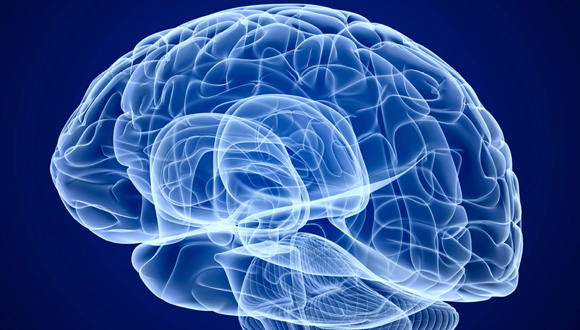No matter what you're doing, your brain is almost always getting a workout.
School work. House work. Work work. Driving in traffic. Watching TV. Running errands. Playing a board game. Deciding what to eat for dinner. Keeping up with a conversation. Remembering where you parked your car.
You rely on your brain for, well, everything.
You lean on it so much that it's no surprise that your brain feels like a muscle — one you flex throughout the day.
But is your brain actually a muscle?
As it turns out, your brain isn't actually a muscle. It's an organ — one that actually plays a huge role in controlling muscles throughout your body.
Muscle is made up of muscle tissue, which is muscle cells grouped into elastic bundles that contract together to produce motion and/or force. You use your muscles to throw a ball for your dog and pick up your cat. And some of your muscles even work on their own, such as the ones that help move food through your digestive tract.
Your brain, on the other hand, is a three-pound organ made up of soft tissue called grey matter and white matter, which contain neurons and other cells (called glial cells) that help maintain these neurons. Neurons are special cells that send and receive information throughout your body in the form of electrical and chemical signals.
Your brain controls and facilitates a lot of things, including your:
- Movement
- Senses
- Thought and reasoning
- Memory
- Emotion processing
- Vital functions, such as respiration and heart rate
But, just because your brain isn't a muscle, that doesn't mean you shouldn't train and flex it like one.
Why your brain benefits from getting a workout
By the time you're about six years old, your brain is done growing. But it continues to change as you age.
During adolescence and early adulthood, subtle changes help you develop and refine the cognitive skills needed to learn new concepts and think strategically. As the years go by, you continue to leverage your cognitive skills to learn new things, solve problems and adjust to challenges and ever-shifting priorities.
Meanwhile, however, studies do suggest that certain cognitive functions may begin to slowly decline over time starting as early as age 30. Things like how fast you process new information, how well you're able to multitask or focus when presented with competing stimuli, and how well you remember facts and personal experiences.
Whether you're almost 30 or already on the other side, all hope is not lost, though.
Your brain might not be a muscle, but — just as you can target specific muscle groups during a workout — one study shows that stimulating your brain may help improve how well it functions.
A 2013 study found that young adults who played a brain-training game showed improved cognitive function, including working memory, problem solving and ability to recall information. This is just one study, though, and — more broadly — most experts agree that the long-term benefits of challenging the brain with word puzzles and games aren't backed by science. The authors of the aforementioned study even note that their findings "don't indicate everyone should play brain training games."
Darn.
There's better news regarding how you can keep up with your brain health as you age, though.
Studies clearly show that getting plenty of physical exercise, particularly cardio, benefits cognitive function and helps reduce a person's risk of dementia — cognitive decline that can impair thinking, memory and communication.
In addition, listening to music and learning to play an instrument have been shown to improve memory, attention and problem-solving abilities in older adults.
So while it's true that your brain isn't a muscle and that cognitive function does slowly decline over time, there are steps you can take to help maintain a strong, healthy brain as you age.


